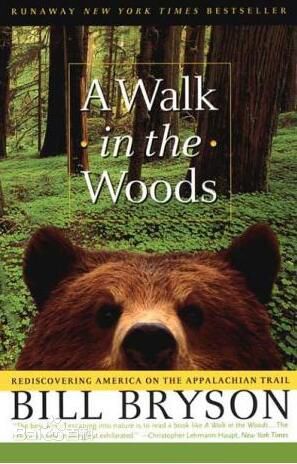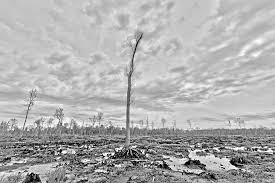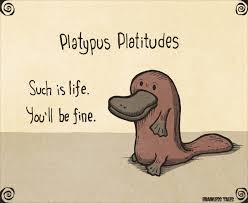- WARNING: overwriting environment variables set in the machine overwriting variable [‘PATH‘]
cuber膜拜
pythonvirtualenv
问题conda在激活环境时出现如下警告:WARNING:overwritingenvironmentvariablessetinthemachineoverwritingvariable['PATH']解决激活当前环境:condaactivatemyenv取消设置环境变量:condaenvconfigvarsunsetPATH重写激活环境查看是否修改成功:condadeactivatecondaa
- 写了一个关于root的介绍以及大致流程(全篇都是自己写的)本人是小菜,欢迎大家指点
王景程
算法scipy
IwanttogiveyouaintroductionofwhatROOTisandthemainstepsofhowtodothat.Iwilltrymybesttoexplain,andifthereareanywordsorsentencesthatarenotaccurate,feelfreetopiontout,asawaytopracticemywriting.Inlayman'ste
- 托福写作:学术讨论写作-开放性题目
EricWang1358
TOEFL开发语言
根据2023年托福考试改革的内容,写作部分的考试形式和内容发生了重大变化,具体如下:托福写作改革后的考试形式取消独立写作托福写作部分取消了原来的独立写作任务,取而代之的是学术讨论写作(WritingforanAcademicDiscussion)。新增学术讨论写作题型描述:模拟线上课堂讨论,教授会提出一个问题,两位同学会给出他们的观点和理由,考生需要阅读这些材料后,发表自己的看法并提供论据。时间要
- Apache Hive
_从头再来_
大数据
一、ApacheHive简介官方网址:https://hive.apache.org/TheApacheHive™datawarehousesoftwarefacilitatesreading,writing,andmanaginglargedatasetsresidingindistributedstorageusingSQL.Structurecanbeprojectedontodataalr
- css 在div左上角添加类似书签的标记
嗬呜阿花
STYLELISTcss前端html
效果图html半导体CSS.mark{float:left;margin:06rpx;position:relative;padding:0;width:24px;color:#fff;writing-mode:sideways-rl;text-align:center;}.mark::after{position:absolute;content:"";left:0;top:100%;borde
- 如何通过阅读外刊积累英文写作句型?(8)原创: 魏剑峰 英文悦读 5天前
长袜子皮卡丘
WhentheLightComesDirkReichardt-Kokowääh2(OriginalSoundtrack)[DeluxeEdition]这是“读外刊,学英文句型”栏目的第八期,关于该栏目第一期的说明可以见如何通过阅读外刊积累英文写作句型?1.形容某人很有名如何形容某人很有名?最常见的说法是somebodyisfamous/well-known/renown,有没有其他说法呢?可以看看
- 2020-03-14
Jackson__Zhang
班级:L3-B姓名:张文清Jackson学号:20193000624日期:2020/3/10作业序号(WritingAssignmentNo.):001题目:Somepeoplesaythatplayingateamsport,suchassoccerorbasketball,shouldbecompulsoryforstudentsbecauseithasmanybenefits.Whatare
- 【ESP32 WiFi篇(四)】ESP32 UDP服务端、客户端
Eiker_3169
ESP32ESP32http
文章目录UDP客户端UDP服务端UDP客户端/*BSDSocketAPIExampleThisexamplecodeisinthePublicDomain(orCC0licensed,atyouroption.)Unlessrequiredbyapplicablelaworagreedtoinwriting,thissoftwareisdistributedonan"ASIS"BASIS,WITH
- ESP32 UDP 05
zq4132
udpESP32嵌入式硬件
1.在上一文章基础上修改,文章网址ESP32-Ethernet-04-CSDN博客2.基本代码/*EthernetBasicExampleThisexamplecodeisinthePublicDomain(orCC0licensed,atyouroption.)Unlessrequiredbyapplicablelaworagreedtoinwriting,thissoftwareisdistr
- The Magician's Nephew Chapter15
Mr_Oldman
"Oh,"saidDigory,verysurprised."Well,alright,I'llsayI'msorry.AndIreallyamsorryaboutwhathappenedinthewaxworksroom.There:I'vesaidI'msorry.Andnow,dobedecent(正派的)andcomeback.Ishallbeinafrightfulholeifyoudo
- GeoTools-地理数据操作Java库
Zian233
java
UserGuide—GeoToolsGeoTools是一个开源Java库,为地理空间数据的操作提供了方法,其数据结构基于开放地理空间联盟(OGC)规范。OpenGIS:地理空间支持JTS(JavaTopologySuite):空间几何支持相关解释数据格式WKT(Well-knownText):OGC制定的文本标记语言,用于表示适量几何对象、空间参考系统以及空间参照系统之间的转换。如"POINT(2
- 自律的科学01:关于毅力的四个错误认知,以及对应的解决策略
单华伟
这是单华伟的第一百一十四篇原创文章(2.0)(part1)迷思之一:毅力是有限的\无限的你认为我们的毅力是有限的,还是无限的?Well,这个问题学界还没有定论,不过奇妙的是,我们对毅力的看法,却能直接影响我们的自律水平。在一次实验中,调查者追踪了两批学生整整一学期,其中一批相信毅力有限,另一批相信毅力无限。在平时,两者的表现没有多大的差别。但是,一旦面临挑战,比如考试迫近,相信毅力有限的学生,往往
- 2021-11-04 How they handle criticism
春生阁
We’reallsmilesandeasy-goingwheneveryoneagreeswitheverypointwemake.Atleastmanyofusare.Well,untilthepinsofcriticismprickthosepointsandforceustoreconsiderouropinions.Whetherit’soursignificantcriticizingo
- 使用Rust编写解释器的指南:一项创新开源项目
尤琦珺Bess
使用Rust编写解释器的指南:一项创新开源项目bookWritingInterpretersinRust:aGuide项目地址:https://gitcode.com/gh_mirrors/book48/book在编程世界中,许多语言运行时都依赖于C和C++来实现。然而,随着Rust语言的崛起,我们正迎来一个新时代——利用Rust的强大性能和安全性构建语言解析器。《WritingInterpret
- 高鸿业《西方经济学微观部分》(第七7版)笔记和课后习题答案真题解
m0_48401676
importcsvdefwrite_csv_file(rows=[],user_file_name='index'):withopen(user_file_name+'.csv','w',newline='')ascsv_file:writer=csv.writer(csv_file)writer.writerows(rows)print('Writingto'+user_file_name+'.
- 探秘纯Rust打造的xlsx文件处理库:umya-spreadsheet
周屹隽
探秘纯Rust打造的xlsx文件处理库:umya-spreadsheetumya-spreadsheetApurerustlibraryforreadingandwritingspreadsheetfiles项目地址:https://gitcode.com/gh_mirrors/um/umya-spreadsheet在日常的数据处理和分析工作中,Excel表格是我们不可或缺的工具。如今,有一款名为
- Rust: Reading and Writing Files
0010000100
Rustrust数据库mysql
ReadingandWritingFilesWeneedsomewaytoactuallygetdatafromthefilesystemsowecanprocessit,andwriteitbackwhenwe’redone我们需要某种方法从文件系统中实际获取数据,以便处理它,并在完成后将其写回来usestd::fs;std::fs::read_to_stringreturnsaResult.I
- 外贸开发信模板分享
ailina_
学习方法
开发信模板这种东西随处可见,但是这种东西怎么会嫌多呢?我们还是要备起来以防万一,今天给大家分享几个开发信案例,学习看看打开自己的思路外贸开发信模板1Dears:Goodday!ThisisCherryfromChina.Wearewritingtoyoutoestablishlongtermtraderelationswithyou.Fromyourcompanyweb,wegettoknowth
- 【2025考研英语高分写作:20大必备范文】经典范文053 社会热点:健康 P177
HitTheBooks
考研
Directions:Writeanessaybasedonthefollowingchart.Inyourwriting,youshould1)interpretthechart,and2)giveyourcomments.Youshouldwriteabout150wordsontheANSWERSHEET.Thelinechartaboveillustratesclearlytheamoun
- 通篇讲解如何基于 Locust 进行性能测试-目录篇
Wade_Crab
可用性测试jmeterpython
序号文章标题作用描述建议阅读时机链接0FirstLocustTest入门尝试适用于浅尝辄止通篇讲解如何基于Locust进行性能测试-CSDN博客1Writingalocustfile详细讲解如何编写Locust测试脚本,包括定义用户行为、任务和场景。对Locust有基本了解后阅读,编写更复杂的测试脚本。写Locust-File-通篇讲解Locust性能测试-CSDN博客2Configuration
- How to do logging in C# with log4net
weixin_30216561
c#开发工具java
IfyouarewritingservercodeinC#ortoalesserextentdesktop/clientthenit'sagoodideatoincludeloggingcodesowhensomethinggoeswrongyouknowwheretostartlooking.TheJavaworldhasdonethesameforyearsandApachelog4jisav
- 2020-04-12
为食杰
班级:L3-A姓名:jacob学号:20193003103日期:3/13作业序号(writingAssignmentNo)004日期:2020/4/12作业序号(WritingAssignmentNo.):004题目:Insomedevelopedcountriespeoplebecomefatbecausetheyeattoomuchjunkfoodandprocessedfood.Sugges
- 网格虫
cundai5745
javapython人工智能javascriptlinuxViewUI
ThereisanexcellentlistofFlexboxbugs,curatedbyPhilipWaltonandGregWhitworth.It’sasiteI’vereferredtomanytimeswhileworkingonmyownprojectsorwritingarticles.IthoughtitmightbeusefultohaveasimilarlistingofCSS
- "Find another man to love,but love me as well."-letter-kursk
Neodeng78
toourson,andtoourunbornchild."Noonehasforever.""ButIwantedmore.""Iwantedtogiveyoumore.""Morebabies.""Loveoursonandthebaby,"forbothofus."Tellthem,againandagain,""thatIlovethem,""asIlovedyou.""Findanoth
- 2022-04-19
Apbenz
12块早餐的来组成,今天早上脑子里想着,不要去吃早餐了,忍着忍着发现还有30分钟的时间才算迟到,还是去吃一点吧,来到摊前就点了一份六块钱的粉,老板问要不要辣,加一点,结果这辣椒很理想,所以加二块的水,吃着不爽,又加了一个鸡蛋,鸡蛋很好吃,又加了一个。6+2+2+2这就是十二块的早餐组成。fastadmintickwritingtickkoreastudythreejsstudy
- 班级:L3-C 姓名:罗佩莹 学号:20193000501日期:2020/4/16 作业序号(Writing Assignment No):005
罗佩莹
题目:Somepeoplebelievethatsomeinternetwebsitesshouldberestrictedtopreventpeoplefromaccessingsexorviolentsites.Towhatextentdoyouagreewiththisopinion?Mypintisneutrality.Ontheonehand,ifaccesstosexorviolent
- 【QT】关于QSerialPort的错误处理 (Error Handling)及错误类型
我不是程序猿儿
QT之路qt开发语言
QSerialPort是Qt框架中用于串口通信的类,它提供了与串行端口进行数据读写和配置的功能。这个类封装了底层操作系统对串口的处理,使得开发者可以方便地在跨平台应用中实现串口通信。回顾:写数据(WritingData)要向串口写数据,首先需要打开串口并配置相关参数(如波特率、数据位、校验位等)。写数据通常使用write()方法。例如:QSerialPortserial;serial.setPor
- matlab编程建议(转)
minidick
matlab编程文档语言测试documentation
原文:简介有关MATLAB代码的建议通常强调的是效率,譬如说有关“不要用循环”等的建议,本指南与之不同。本指南主要考虑的是代码(格式)的正确性、清晰性与通用性。本指南的目的在于帮助写出更可能正确、易于理解、更具有共享性与更利于维护的代码。正如BrianKernighan写道:“Well-writtenprogramsarebetterthanbadly-writtenones--theyhavef
- [英语学习] 流利说 商务英语 Level 3-Unit 1 Part 3-5 Dialogue: Talking About Schedules
Ellen_Cxy
A:HeyAdam.SorryI'mlate.Igothelpupattheoffice.B:Don'tworryaboutit,Peter.Howarethingsgoing?A:Well,investmentbankingdoesn'thavetheeasiestscheduleintheworld.Sometimes,Igethomeatmidnightorevenlater!B:Ihadn
- 2018-05-22
如果我名王玉珏
3.Charles,anatheist,iswritingapaperontheissueofprayerinpublicschools.Heiswellacquaintedwiththeargumentsadvancedbythosewhoopposesuchprayerbutunfamiliarwiththeothersideoftheissue.Charlesreasonsthatbecau
- 集合框架
天子之骄
java数据结构集合框架
集合框架
集合框架可以理解为一个容器,该容器主要指映射(map)、集合(set)、数组(array)和列表(list)等抽象数据结构。
从本质上来说,Java集合框架的主要组成是用来操作对象的接口。不同接口描述不同的数据类型。
简单介绍:
Collection接口是最基本的接口,它定义了List和Set,List又定义了LinkLi
- Table Driven(表驱动)方法实例
bijian1013
javaenumTable Driven表驱动
实例一:
/**
* 驾驶人年龄段
* 保险行业,会对驾驶人的年龄做年龄段的区分判断
* 驾驶人年龄段:01-[18,25);02-[25,30);03-[30-35);04-[35,40);05-[40,45);06-[45,50);07-[50-55);08-[55,+∞)
*/
public class AgePeriodTest {
//if...el
- Jquery 总结
cuishikuan
javajqueryAjaxWebjquery方法
1.$.trim方法用于移除字符串头部和尾部多余的空格。如:$.trim(' Hello ') // Hello2.$.contains方法返回一个布尔值,表示某个DOM元素(第二个参数)是否为另一个DOM元素(第一个参数)的下级元素。如:$.contains(document.documentElement, document.body); 3.$
- 面向对象概念的提出
麦田的设计者
java面向对象面向过程
面向对象中,一切都是由对象展开的,组织代码,封装数据。
在台湾面向对象被翻译为了面向物件编程,这充分说明了,这种编程强调实体。
下面就结合编程语言的发展史,聊一聊面向过程和面向对象。
c语言由贝尔实
- linux网口绑定
被触发
linux
刚在一台IBM Xserver服务器上装了RedHat Linux Enterprise AS 4,为了提高网络的可靠性配置双网卡绑定。
一、环境描述
我的RedHat Linux Enterprise AS 4安装双口的Intel千兆网卡,通过ifconfig -a命令看到eth0和eth1两张网卡。
二、双网卡绑定步骤:
2.1 修改/etc/sysconfig/network
- XML基础语法
肆无忌惮_
xml
一、什么是XML?
XML全称是Extensible Markup Language,可扩展标记语言。很类似HTML。XML的目的是传输数据而非显示数据。XML的标签没有被预定义,你需要自行定义标签。XML被设计为具有自我描述性。是W3C的推荐标准。
二、为什么学习XML?
用来解决程序间数据传输的格式问题
做配置文件
充当小型数据库
三、XML与HTM
- 为网页添加自己喜欢的字体
知了ing
字体 秒表 css
@font-face {
font-family: miaobiao;//定义字体名字
font-style: normal;
font-weight: 400;
src: url('font/DS-DIGI-e.eot');//字体文件
}
使用:
<label style="font-size:18px;font-famil
- redis范围查询应用-查找IP所在城市
矮蛋蛋
redis
原文地址:
http://www.tuicool.com/articles/BrURbqV
需求
根据IP找到对应的城市
原来的解决方案
oracle表(ip_country):
查询IP对应的城市:
1.把a.b.c.d这样格式的IP转为一个数字,例如为把210.21.224.34转为3524648994
2. select city from ip_
- 输入两个整数, 计算百分比
alleni123
java
public static String getPercent(int x, int total){
double result=(x*1.0)/(total*1.0);
System.out.println(result);
DecimalFormat df1=new DecimalFormat("0.0000%");
- 百合——————>怎么学习计算机语言
百合不是茶
java 移动开发
对于一个从没有接触过计算机语言的人来说,一上来就学面向对象,就算是心里上面接受的了,灵魂我觉得也应该是跟不上的,学不好是很正常的现象,计算机语言老师讲的再多,你在课堂上面跟着老师听的再多,我觉得你应该还是学不会的,最主要的原因是你根本没有想过该怎么来学习计算机编程语言,记得大一的时候金山网络公司在湖大招聘我们学校一个才来大学几天的被金山网络录取,一个刚到大学的就能够去和
- linux下tomcat开机自启动
bijian1013
tomcat
方法一:
修改Tomcat/bin/startup.sh 为:
export JAVA_HOME=/home/java1.6.0_27
export CLASSPATH=$CLASSPATH:$JAVA_HOME/lib/tools.jar:$JAVA_HOME/lib/dt.jar:.
export PATH=$JAVA_HOME/bin:$PATH
export CATALINA_H
- spring aop实例
bijian1013
javaspringAOP
1.AdviceMethods.java
package com.bijian.study.spring.aop.schema;
public class AdviceMethods {
public void preGreeting() {
System.out.println("--how are you!--");
}
}
2.beans.x
- [Gson八]GsonBuilder序列化和反序列化选项enableComplexMapKeySerialization
bit1129
serialization
enableComplexMapKeySerialization配置项的含义
Gson在序列化Map时,默认情况下,是调用Key的toString方法得到它的JSON字符串的Key,对于简单类型和字符串类型,这没有问题,但是对于复杂数据对象,如果对象没有覆写toString方法,那么默认的toString方法将得到这个对象的Hash地址。
GsonBuilder用于
- 【Spark九十一】Spark Streaming整合Kafka一些值得关注的问题
bit1129
Stream
包括Spark Streaming在内的实时计算数据可靠性指的是三种级别:
1. At most once,数据最多只能接受一次,有可能接收不到
2. At least once, 数据至少接受一次,有可能重复接收
3. Exactly once 数据保证被处理并且只被处理一次,
具体的多读几遍http://spark.apache.org/docs/lates
- shell脚本批量检测端口是否被占用脚本
ronin47
#!/bin/bash
cat ports |while read line
do#nc -z -w 10 $line
nc -z -w 2 $line 58422>/dev/null2>&1if[ $?-eq 0]then
echo $line:ok
else
echo $line:fail
fi
done
这里的ports 既可以是文件
- java-2.设计包含min函数的栈
bylijinnan
java
具体思路参见:http://zhedahht.blog.163.com/blog/static/25411174200712895228171/
import java.util.ArrayList;
import java.util.List;
public class MinStack {
//maybe we can use origin array rathe
- Netty源码学习-ChannelHandler
bylijinnan
javanetty
一般来说,“有状态”的ChannelHandler不应该是“共享”的,“无状态”的ChannelHandler则可“共享”
例如ObjectEncoder是“共享”的, 但 ObjectDecoder 不是
因为每一次调用decode方法时,可能数据未接收完全(incomplete),
它与上一次decode时接收到的数据“累计”起来才有可能是完整的数据,是“有状态”的
p
- java生成随机数
cngolon
java
方法一:
/**
* 生成随机数
* @author
[email protected]
* @return
*/
public synchronized static String getChargeSequenceNum(String pre){
StringBuffer sequenceNum = new StringBuffer();
Date dateTime = new D
- POI读写海量数据
ctrain
海量数据
import java.io.FileOutputStream;
import java.io.OutputStream;
import org.apache.poi.xssf.streaming.SXSSFRow;
import org.apache.poi.xssf.streaming.SXSSFSheet;
import org.apache.poi.xssf.streaming
- mysql 日期格式化date_format详细使用
daizj
mysqldate_format日期格式转换日期格式化
日期转换函数的详细使用说明
DATE_FORMAT(date,format) Formats the date value according to the format string. The following specifiers may be used in the format string. The&n
- 一个程序员分享8年的开发经验
dcj3sjt126com
程序员
在中国有很多人都认为IT行为是吃青春饭的,如果过了30岁就很难有机会再发展下去!其实现实并不是这样子的,在下从事.NET及JAVA方面的开发的也有8年的时间了,在这里在下想凭借自己的亲身经历,与大家一起探讨一下。
明确入行的目的
很多人干IT这一行都冲着“收入高”这一点的,因为只要学会一点HTML, DIV+CSS,要做一个页面开发人员并不是一件难事,而且做一个页面开发人员更容
- android欢迎界面淡入淡出效果
dcj3sjt126com
android
很多Android应用一开始都会有一个欢迎界面,淡入淡出效果也是用得非常多的,下面来实现一下。
主要代码如下:
package com.myaibang.activity;
import android.app.Activity;import android.content.Intent;import android.os.Bundle;import android.os.CountDown
- linux 复习笔记之常见压缩命令
eksliang
tar解压linux系统常见压缩命令linux压缩命令tar压缩
转载请出自出处:http://eksliang.iteye.com/blog/2109693
linux中常见压缩文件的拓展名
*.gz gzip程序压缩的文件
*.bz2 bzip程序压缩的文件
*.tar tar程序打包的数据,没有经过压缩
*.tar.gz tar程序打包后,并经过gzip程序压缩
*.tar.bz2 tar程序打包后,并经过bzip程序压缩
*.zi
- Android 应用程序发送shell命令
gqdy365
android
项目中需要直接在APP中通过发送shell指令来控制lcd灯,其实按理说应该是方案公司在调好lcd灯驱动之后直接通过service送接口上来给APP,APP调用就可以控制了,这是正规流程,但我们项目的方案商用的mtk方案,方案公司又没人会改,只调好了驱动,让应用程序自己实现灯的控制,这不蛋疼嘛!!!!
发就发吧!
一、关于shell指令:
我们知道,shell指令是Linux里面带的
- java 无损读取文本文件
hw1287789687
读取文件无损读取读取文本文件charset
java 如何无损读取文本文件呢?
以下是有损的
@Deprecated
public static String getFullContent(File file, String charset) {
BufferedReader reader = null;
if (!file.exists()) {
System.out.println("getFull
- Firebase 相关文章索引
justjavac
firebase
Awesome Firebase
最近谷歌收购Firebase的新闻又将Firebase拉入了人们的视野,于是我做了这个 github 项目。
Firebase 是一个数据同步的云服务,不同于 Dropbox 的「文件」,Firebase 同步的是「数据」,服务对象是网站开发者,帮助他们开发具有「实时」(Real-Time)特性的应用。
开发者只需引用一个 API 库文件就可以使用标准 RE
- C++学习重点
lx.asymmetric
C++笔记
1.c++面向对象的三个特性:封装性,继承性以及多态性。
2.标识符的命名规则:由字母和下划线开头,同时由字母、数字或下划线组成;不能与系统关键字重名。
3.c++语言常量包括整型常量、浮点型常量、布尔常量、字符型常量和字符串性常量。
4.运算符按其功能开以分为六类:算术运算符、位运算符、关系运算符、逻辑运算符、赋值运算符和条件运算符。
&n
- java bean和xml相互转换
q821424508
javabeanxmlxml和bean转换java bean和xml转换
这几天在做微信公众号
做的过程中想找个java bean转xml的工具,找了几个用着不知道是配置不好还是怎么回事,都会有一些问题,
然后脑子一热谢了一个javabean和xml的转换的工具里,自己用着还行,虽然有一些约束吧 ,
还是贴出来记录一下
顺便你提一下下,这个转换工具支持属性为集合、数组和非基本属性的对象。
packag
- C 语言初级 位运算
1140566087
位运算c
第十章 位运算 1、位运算对象只能是整形或字符型数据,在VC6.0中int型数据占4个字节 2、位运算符: 运算符 作用 ~ 按位求反 << 左移 >> 右移 & 按位与 ^ 按位异或 | 按位或 他们的优先级从高到低; 3、位运算符的运算功能: a、按位取反: ~01001101 = 101
- 14点睛Spring4.1-脚本编程
wiselyman
spring4
14.1 Scripting脚本编程
脚本语言和java这类静态的语言的主要区别是:脚本语言无需编译,源码直接可运行;
如果我们经常需要修改的某些代码,每一次我们至少要进行编译,打包,重新部署的操作,步骤相当麻烦;
如果我们的应用不允许重启,这在现实的情况中也是很常见的;
在spring中使用脚本编程给上述的应用场景提供了解决方案,即动态加载bean;
spring支持脚本





